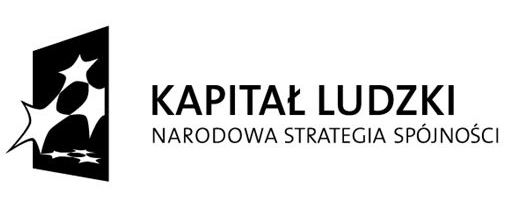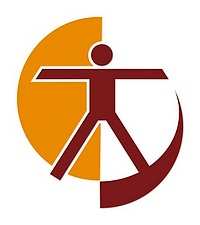



STUDIUM JĘZYKÓW OBCYCH
UNIWERSYTETU EKONOMICZNEGO
W KRAKOWIE
Projekt: Nadal potrzebni – lepsze kwalifikacje w miejscu pracy JĘZYK ANGIELSKI
SŁOWNICTWO Z OBSZARU: BIZNES
1. Business - Biznes
Who is the most important person to your business? The customer. The confidence you possess about your business and the belief you have in your products and services are important to the success of your new business. However, your enthusiasm for your products and services is only part of the equation. The most important person to the long-term success of your business is the customer. You can't know too much about the people who will be a vital part of your business for a long time.
• Who will your customers be?
• Will they be a certain age group?
• Will they have specific interests?
• Will they be businesses or individuals?
• Will they have specific income levels?
• What customer needs and wants will your product or service fulfill?
• Where will your customers be located?
• What will be the best ways to communicate with your potential customers?
These are only some of the questions you will need to answer about your customers. Your customers may be a diverse group. They may speak different languages, share different cultures and values, and live in different places across the country or around the world. It will be important, in spite of the differences among your customers, to identify their common needs and wants that your product or service will meet.
2. Key terminology
Customer – klient
Confidence – wiara, zaufanie
Possess – posiadać
Products - produkty
Services – usługi
Sucsess – sukces
Equation – równanie long-term – długoterminowy
Age group – grupa wiekowa
Specific interests – specyficzne zainteresowania
Customer needs and wants – potrzeby klientów
Fulfill- wypełniać, sprostać
Located – umieszczony
Potential customer – potencjalny klient
To communicate – porozumiewać się
Diverse – zróżnicowany
Projekt współfinansowany przez
Unię Europejską w ramach
Europejskiego Funduszu Społecznego
EUROPEJSKI FUNDUSZ SPOŁECZNY
Biuro projektu: Małopolska Szkoła Administracji Publicznej Uniwersytetu Ekonomicznego w Krakowie ul. Szewska 20/3; 31-009 Kraków; tel.: 012 292 68 99, faks: 012 422 69 19; www.nadalpotrzebni.msap.pl
To identify – identyfikować
To meet needs – sprostać potrzebom
To own – posiadać, być właścicielem
Ownership - własność
To manage – zarządzać
Profession – zawód
Share – udział, akcja
Shareholder - udziałowiec
Enterprise – przedsiębiorstwo
Stock Exchange – giełda papierów wartościowych
The state – państwo
Sole trader – wyłączny właściciel
Partnership – spółka
Co-operative - spółdzielnia
Private limited company – spółka z ograniczoną odpowiedzialnością Public limited company – spółka akcyjna
State owned company – przedsiębiorstwo państwowe
3. Types of business:
Sole trader – is the smallest form of business, adopted by shops, farms, or providers of services.
The firm is owned by one man, who both controls and manages it.
Partnership – the ownership of the firm is shared by a number of people, typical for some professions such as lawyers or doctors.
Co-operative – a business unit whose ownership belongs to their members and is a self-governing unit.
Private limited company – this business is owned by shareholders, adopted by large enterprises.
Public limited company – a similar type of company , but shares are traded freely on the stock exchange.
State-owned company – owned and controlled by the state.
4. Exercises
1. Answer the following questions:
• What is characteristic for a one-man business?
• What do you call a business unit owned by a number of people?
• Who are shareholders?
• What are co-operatives?
2. Complete the sentences:
• The one-man business is usually the ………….. and the least …………...
Business unit.
• The owner of a small business both ………………. And …………….. it.
• Partnership is generally more efficient than a one -man business because………………..
• Big enterprises usually adopt the form of a ………….…..
3. Discuss:
• Types of business organisation in Poland – and their main characteristics.
• The company you would like to work for.
Wyszukiwarka
Podobne podstrony:
angielski (biznes)
angielski biznes
Angielski biznesowy słownictwo
Angielski biznes
Angielski slownictwo biznesowe Nieznany
Biznesowe sÅownictwo i formuÅy konwersacyjne po angielsku
ANGIELSKI Samouczek, W Pracy i Biznesie demo
ANGIELSKI Samouczek, W Pracy i Biznesie demo
Angielski w pracy i biznesie cz 2
angielskie słówka biznesowe
Angielski w pracy i biznesie e 1718
angielski słówka BIZNES I HANDEL
LINGO ANGIELSKI w pracy i biznesie Intensywny kurs w 30 lekcjach PDF nagrania audio audio kurs
Biznesowe słownictwo i formuły konwersacyjne po angielsku – ebook
więcej podobnych podstron
